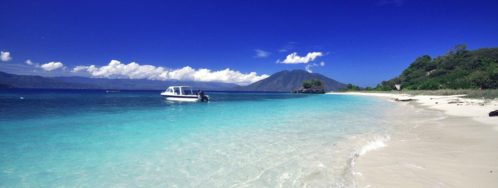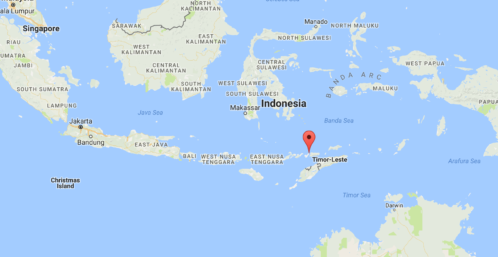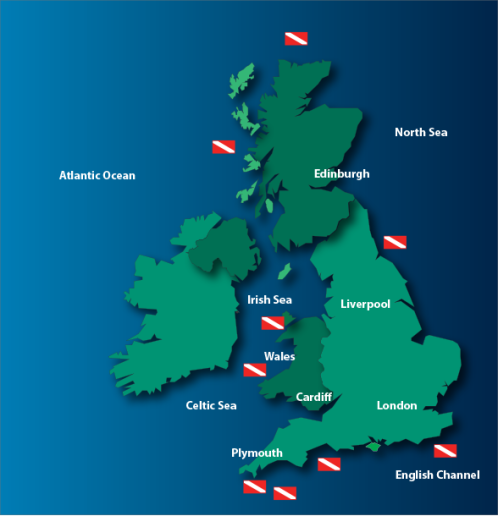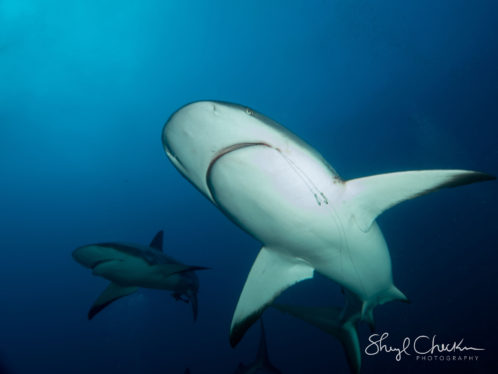
I recently spent seven days honing my underwater photography skills at The 2019 Roatan Underwater Photo Fest at Turquoise Bay Resort and Subway Watersports on Roatan. The workshop, led by Brandi Mueller and Andrew Raak consisted of 3 dives per day, classroom lectures on various photography skills needed to produce great underwater images as well as some interesting talks about Coral Restoration and the variety of critters to be found beneath the sea in Roatan.
I’ve been shooting underwater for a few years, but with only one dive trip per year, it’s hard to improve when, at the beginning of each trip you need to remember all your settings and buttons on your housing and what you learned the previous year. That is why I find taking workshops like these so valuable. The more you hear something, eventually it’s going to stick! When I first started shooting underwater I was using a Canon G11 compact camera, manually setting my white balance to achieve better color. Wanting more creative control over my photos, I moved to an Olympus OMD EM5 Mark II mirrorless camera in an Olympus PT-13 housing (initially with 1 Sea & Sea YSD-1 strobe) which I have been using for the past 3-1/2 years. I added a second strobe last year and hoped that this workshop week would help me learn better lighting underwater and to focus where I wanted to. Andrew’s help with my understanding back button focus helped me enormously with this. I had heard of back button focus but really didn’t understand how to use it until this week.
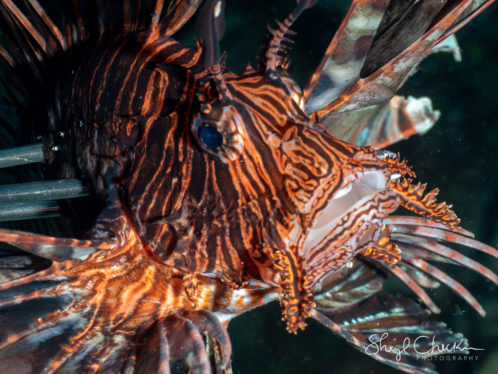
At the beginning of the week we were given the categories for the contest and told that we would have the opportunity to enter up to 3 photos in each category: Compact cameras, Wide Angle, Macro, Conservation and Night. The conditions were challenging since the weather was not cooperating. Many of the dives had a fair amount of surge, making steadying your camera on a subject difficult (at least for me).
I was really skeptical that I would have anything good to show for myself at weeks end. But when it came down to choosing images to enter in each category, I was surprised to have a hard time choosing what to enter. And, even more surprising was that I won first place in the Conservation category as well as for a shot taken at a shark feeding no less! It was my first shark feeding dive and I have to say one of the most exciting dives that I have ever been on. Kneeling on the sand, camera in hand I just shot and shot as about 8-10 large grey reef sharks swam all around me – it was an incredible experience! To have gotten a winning photo out of it was just icing on the cake. The Lionfish photo that I took (above) during the night dive won runner-up in the conservation category.
I also won runner up in the Night category for two of my photos. The three runner up photos were all taken at night, where lighting is critical for composition and focus since there is no available light. So I’m thinking that I did achieve my goals for the week.
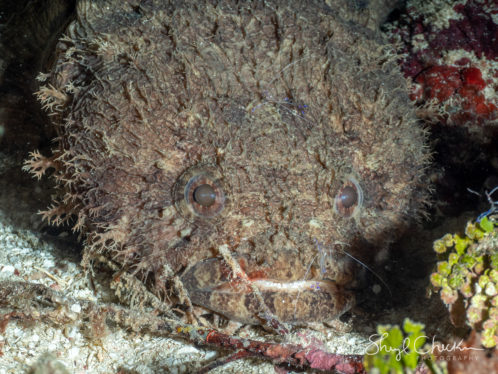
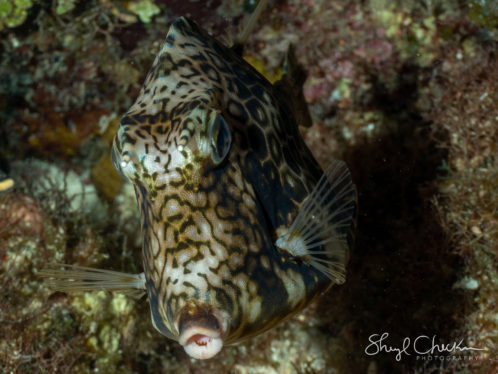
My takeaway from this is that practice does make perfect (or if not perfect, definitely improvement). Can’t wait to get back in the water and practice some more! Till then I’ll be practicing on land.

